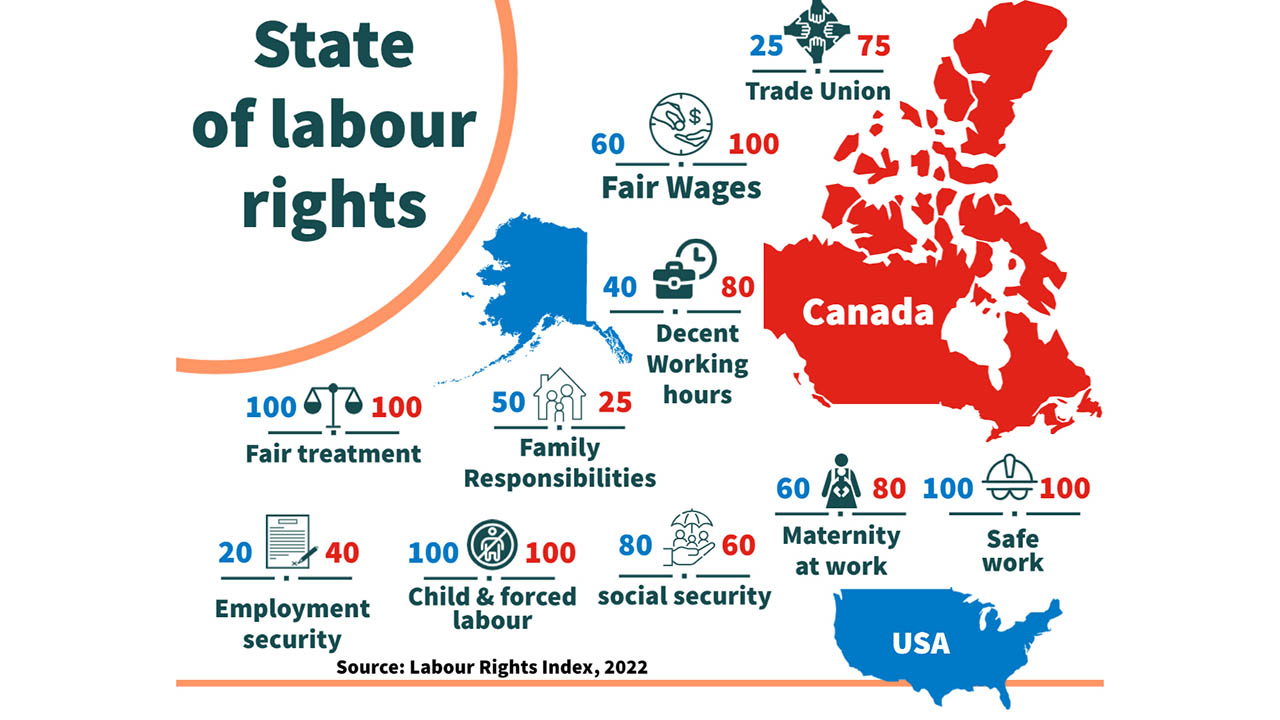Sustainability Today: There's a lot more to consider in a job
 CREDIT: FANSHAWE SUSTAINABILITY
CREDIT: FANSHAWE SUSTAINABILITYWe should care about workers' rights, labour laws, fair wages, measures and the tools available to workers that address their concerns.
We all entered college thinking about our future careers and the jobs that we would do once we graduate. We put a lot of importance on this, and why not? It would sustain us and help us become financially strong to improve our lifestyle. The bottom line is that a job is important but so are the ideas, concepts, rights and responsibilities that come along with it.
We should care about workers’ rights, labour laws, fair wages, measures and the tools available to workers that address their concerns. Apart from the numbers on the paycheck, these things influence the work environment. If the work environment is unsustainable, it ends up affecting the job one does, and subsequently the person.
According to the Labour Rights Index, the global average scores for the “fair wages” and “employment security” indicators were 67 per cent and 62 per cent, respectively. Globally, women still make just 77 per cent of what men earn in an hour for the same work and the gender pay gap is even worse for “mothers, women of colour, immigrant and disabled women.” Child labour is still prevalent to an extent that as of 2020, 160 million children, or one in 10 children, are engaged in child labour. This needs to change for our future to be sustainable. Sustainable Development Goal 8 (Decent Work and Economic Growth) highlights these issues and was formulated to promote productive employment and decent work for all.
Although Canada has regulations including Labour Code and Workplace Health and Safety, it scores 76 on the Labor Rights Index, which falls in the range of “Reasonable Access to Decent Work.” This shows that more needs to be done. While that rests on the policy makers, we can do our part by being aware and exercising our rights and responsibilities, advocating and standing up for fair work.
As we transition from college to our chosen paths, we must be mindful and aware that there are more things that come with a job than pay at the end of the month, and strive to understand work in a holistic way and do our part.
Look for jobs at Fanshawe job portal: myfuture.fanshawec.ca
Know about Canada’s Labour Code: laws-lois.justice.gc.ca/eng/acts/l-2
Days to look forward to:
- Jan. 24: International Day of Eduction
- Jan. 27: International Day of Commemoration in Memory of the Victims of the Holocaust
- Jan. 27: Semester for Sustainability Booth (Theme: SDG 5 — Gender Equality)
- Feb. 1-28: Black History Month
- Feb. 1-7: World Interfaith Harmony Week
- Feb. 2: World Wetlands Day
- Feb. 3: Semester for Sustainability Booth (Theme: SDG 7 — Affordable and Clean Energy)
- Feb. 16-17: Residence Energy Conservation Challenge















